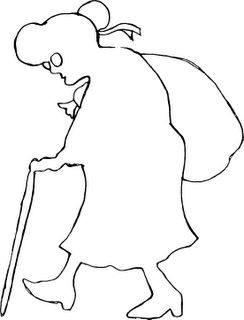skip to main |
skip to sidebar
Expectations, imagination and teaching
I’m tremendously interested in how people learn. Everything I run across about the brain, I read.
But knowing something about the brain’s potential is only a starting point. The more I read, study, and work with people, the more I believe that the most important ingredients are expectations and imagination. Maybe in that order, maybe not.
I like what Carl Sagan had to say (though he was specifically concerned with science, I see the application across many disciplines):
Why should it be hard for scientists to get science across?… Knowing and explaining, they say, are not the same thing. What’s the secret?
There’s only one, I think: Don’t talk to the general audience as you would to your scientific colleagues. There are terms that convey your meaning instantly and accurately to fellow experts. You may parse these phrases every day in your professional work. But they do no more than mystify an audience of nonspecialists. Use the simplest possible language. Above all, remember how it was before you yourself grasped whatever it is you’re explaining. Remember the misunderstandings that you almost fell into, and note them explicitly. Keep firmly in mind that there was a time when you didn’t understand any of this either. Recapitulate the first steps that led you from ignorance to knowledge.
The Demon-Haunted World, Ballantine Books, p. 333.
He also quotes John Passmore, who describes science as often being presented
as a matter of learning principles and applying them by routine procedures. It is learned from textbooks, not by reading the works of great scientists or even the day-to-day contributions to the scientific literature… The beginning scientist, unlike the beginning humanist, does not have an immediate contact with genius. Indeed… school courses can attract quite the wrong sort of person into science—unimaginative boys and girls who like routine.
The Demon-Haunted World, p. 335.
J.K. Rowling must have had this kind of learning firmly in mind when she created the character of Professor Binns in the Harry Potter series. Binns teaches History of Magic at Hogwarts, and is described as having gotten up from his chair one day, leaving his body behind, never noticing that he’d died. Granted, he teaches history, which can be trickier to teach than most subjects (I tended to fall asleep while studying music history), but he routinely puts all his students to sleep, without registering that fact, as he drones on.
Over the past several decades, a number of often conflicting theories have been put forth explaining a) what’s wrong with education and b) how to fix it. I’ve witnessed pendulum shifts, but while spikes of improvement do occur, the overall trend isn’t reassuring.
I look at the teachers I know who’ve succeeded (and by success I mean even their poor to “average” students learn and grow) and I see first that they have expectations (which can require great imagination when considering some people’s potential). But I think imagination also plays a part in enabling the teacher to know where the target is, and that textbooks and tests are only guides in aiming for the target, not the target themselves.
Talent hits a target no one else can hit; Genius hits a target no one else can see. Arthur Schopenhauer (1788–1860)
I suspect Schopenhauer didn't have teachers in mind here, but it's going to take genius teachers to raise up successive generations of effective teachers (and I can't even begin to get into the infrastucture and budget concerns here...).

No comments:
Post a Comment